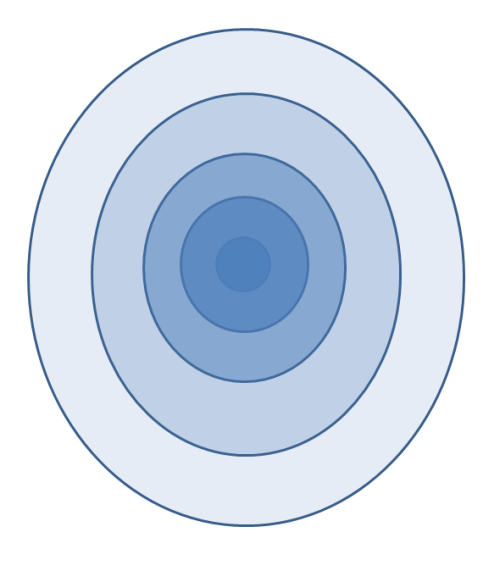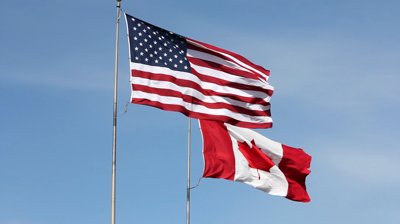Blue Highways: Greenport, New York
Unfolding the Map
 Getting gas in Greenport with William Least Heat-Moon lets us reflect over the words of the gas station attendant about what belongs where. Does Long Island belong to Connecticut, New York, or should it just be its own state. I'll discuss what attaches us to place, and if it really means anything. To attach yourself to Greenport, check out the map. At right is the Eastern bluebird, the state bird of New York. The image is from Wikimedia Commons.
Getting gas in Greenport with William Least Heat-Moon lets us reflect over the words of the gas station attendant about what belongs where. Does Long Island belong to Connecticut, New York, or should it just be its own state. I'll discuss what attaches us to place, and if it really means anything. To attach yourself to Greenport, check out the map. At right is the Eastern bluebird, the state bird of New York. The image is from Wikimedia Commons.
Book Quote
"Don't call me a New Yorker. This is Long Island....
"Manhattan's a hundred miles from here. We're closer to Boston than the city. Long Island hangs under Connecticut. Look at the houses here, the old ones. They're New England-style because the people that built them came from Connecticut. Towns out here look like Connecticut. I don't give a damn if the city's turned half the island into a suburb - we should rightfully be Connecticut Yankees. Or we should be the seventh New England state. This island's bigger than Rhode Island any way you measure it..."
Blue Highways: Part 9, Chapter 7
 Greenport, New York. Photo by americasroof and hosted at Wikimedia Commons. Click on photo to go to host page.
Greenport, New York. Photo by americasroof and hosted at Wikimedia Commons. Click on photo to go to host page.
Greenport, New York
With whom and with what place does one identify? For many of us it is easy. Our ties to home, to family and friends, make our identities pretty strong and ones that stay with us throughout life, despite where we live. You can take some boys and girls out of _____ (fill in your place name here) but you can't take the _____ out of those boys or girls.
I grew up in such a place. Everybody I know who lived or currently lives in my home town thinks its a little slice of God's heaven on earth. It is a small town, situated on the coast of Northern California, north of San Francisco and just south of the intriguingly named Lost Coast. It's rugged and beautiful. People have continued to live there despite economic slowdowns and loss of industry.
Of course, we all thought that the north coast of California was the best place to be. If you couldn't live in my home town, at least you wanted to be somewhere in the north coast region. The Bay Area was nice but too crowded, so you wanted to stay away from there. But if you couldn't live near the coast, being in Northern California was good enough because it is beautiful and not too crowded. The Bay Area was crowded, it is true, but it was certainly preferable to Southern California, which was way too crowded and busy and all that traffic.
But hey, California, even with southern California, was preferable to anywhere else in the country. Where else could you find such coastline, such mountains, such wonderful farmland, such variety, such entertainment? So don't mess with California, it is the best place on earth! And even if you couldn't live in California, then at least if you lived somewhere in the west you were doing better than if you had to live in the harsh Midwest, the steamy South or the uptight and overpopulated East Coast. But you had to feel lucky that you were born and lived in the United States of America, the best nation on earth.
And so on...
I could go backwards to, down to the very street and acreage on which I grew up. The point is, our thought processes about places resemble concentric circles. I have put a graphic below...

If you think of the middle, small circle as the point of origin, such as your neighborhood or your town, then it is a small part of a bigger area, such as your region in the state. We belong to many different localities and identify with many different places. That's why I could proudly be a Fort Bragger, but also a Northern Californian, a Californian, a westerner and an American.
I think the next big concentric circle that is in the process of becoming part of our identity is regional, or perhaps continental. Europe took that big leap starting in the 1950s, but while many people who live there consider themselves European, most of them identify more with their country of origin. There has yet to be forged a consistent and strong pan-European identity. However, you see baby steps toward this regional identification in places like Asia and even in the Western Hemisphere. The identification is loose because the integration is occurring economically, not politically.
In the end, borders are just made up markers on a map. As the Long Islander who identifies with Connecticut and New England more than New York in the quote above demonstrates, borders don't often truly delineate who belongs where. This is especially true in countries where borders were haphazardly drawn, such as in the Middle East, or where borders were defined by acts of aggression or the taking of territory through war. Much of the Southwestern United States fits this description. I've been told that the US-Mexico border in Texas is just a place where guard stations are erected. The real border is a fuzzy zone stretching from San Antonio to somewhere inside Mexico. Southern California is as much Mexican as it is American. Except for a different systems of government, and excepting Quebec, much of Canada looks like the northern U.S. states it borders, and its people have remarkably similar appearances and values.
Will people one day identify with each other on a planetary basis? I've been watching the old Star Trek series lately, and the idea of a Federation, in which humans identify with each other and the Earth as their common home, seems very far away. I suppose it's a historical process, evolving just as our awareness of what constitutes our "neighborhood" evolves also. At one time most people couldn't imagine what lay beyond their sight. Now, we can imagine, so much so that I see writing about our neighborhood in our galaxy. As our ideas and goals get bigger, so does the sense of what and where we belong. And I think that's all for the good.
Musical Interlude
Here's a wonderful song by a group named Pangea, consisting of the US band Flying Machines, and musicians Cheng Lin from China, Kailash Kher from India, Khaled from Algeria/France and King Sunny Ade from Nigeria. The song is called Citizens of the World. Enjoy this global music supergroup!
If you want to know more about Greenport
New York Times: Greenport, New York
New York Travel Magazine: Greenport
Village of Greenport
Wikipedia: Greenport
Next up: Riverhead, New York
 Blue Highways,
Blue Highways,  Greenport,
Greenport,  New York,
New York,  Pangea,
Pangea,  William Least Heat-Moon,
William Least Heat-Moon,  border,
border,  citizen,
citizen,  identity,
identity,  place,
place,  pride,
pride,  region,
region,  road trip in
road trip in  Blue Highways
Blue Highways 





